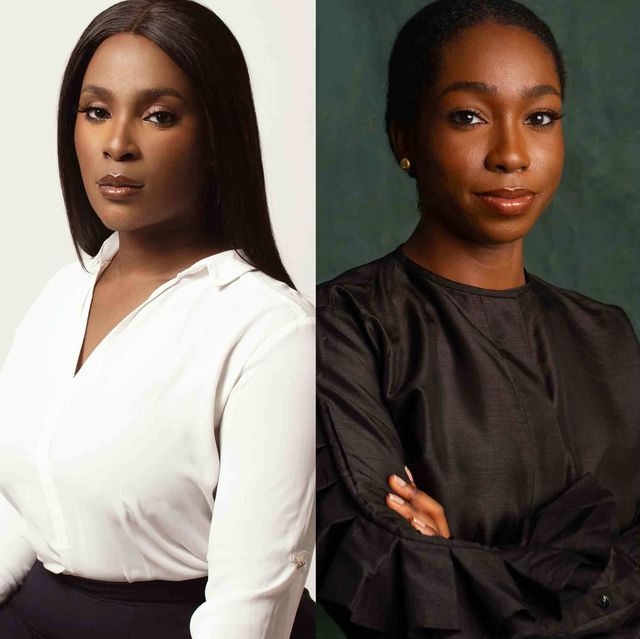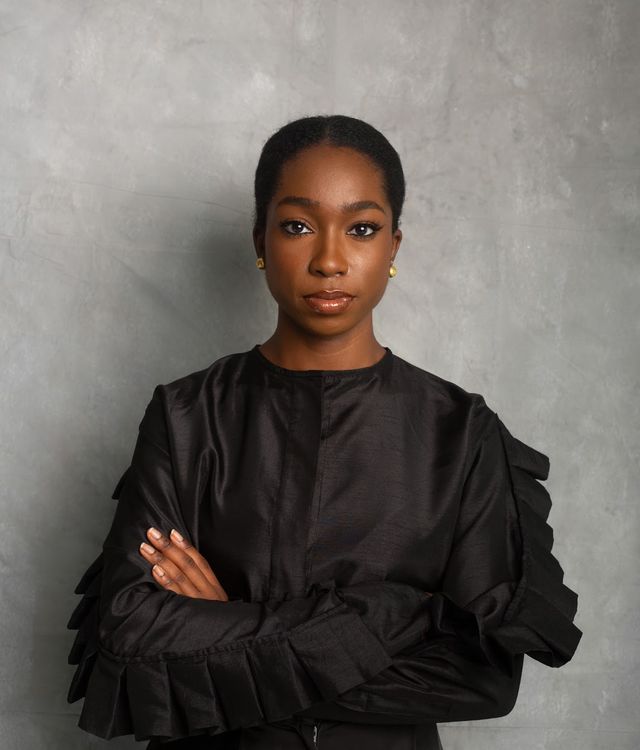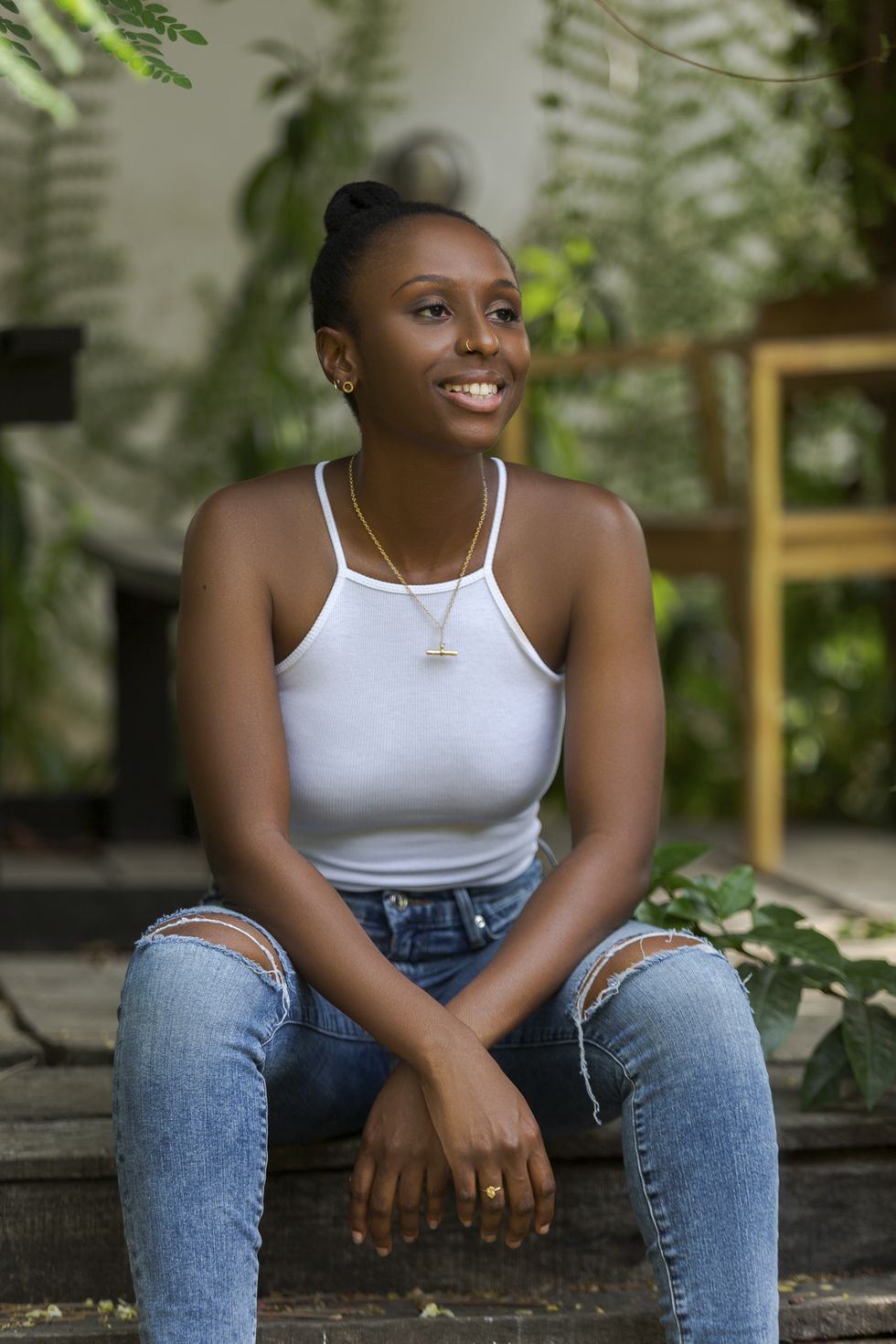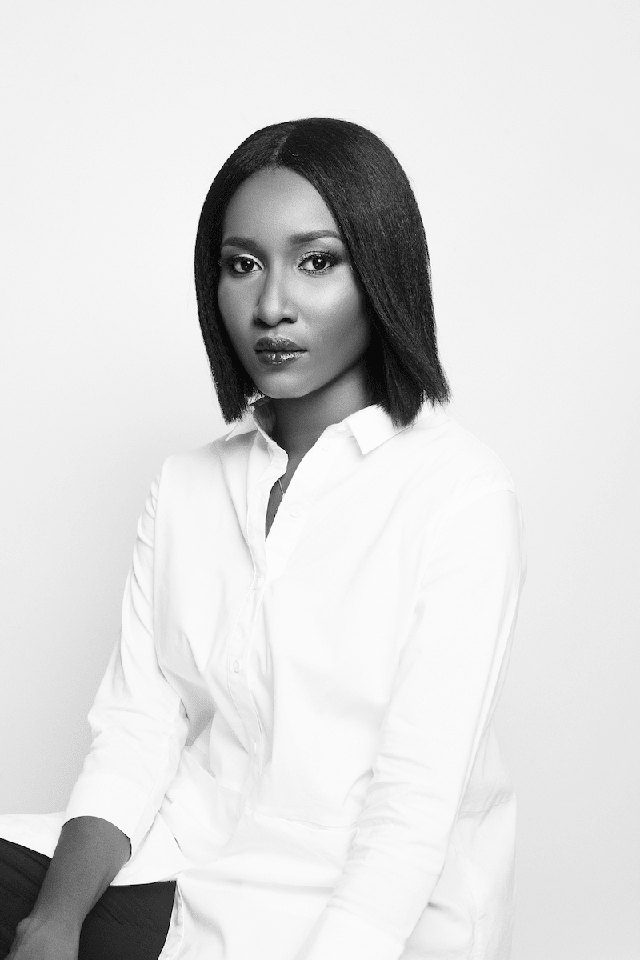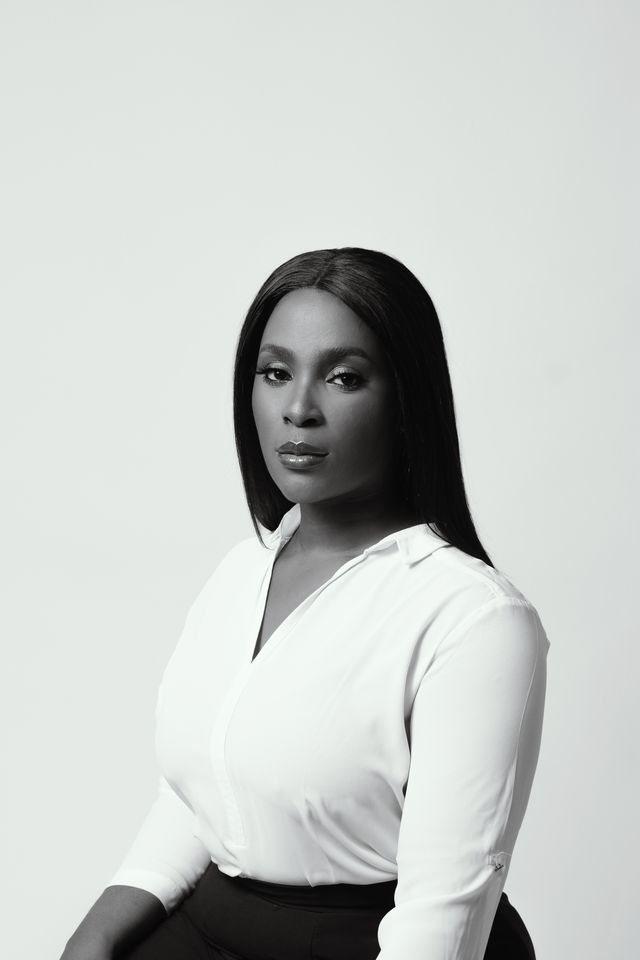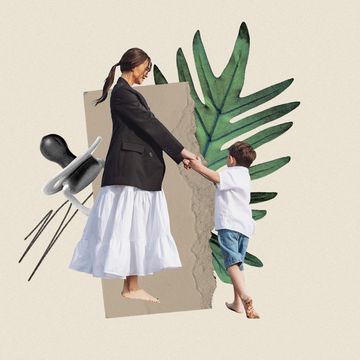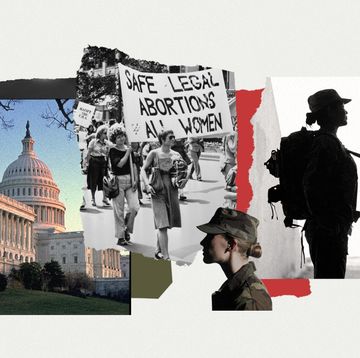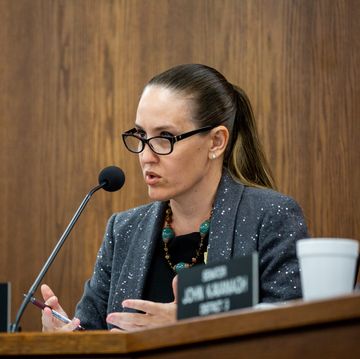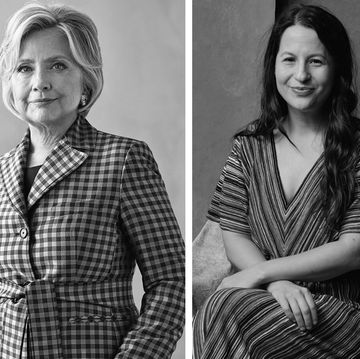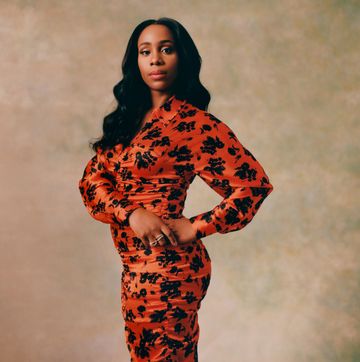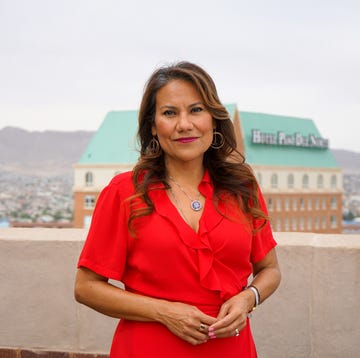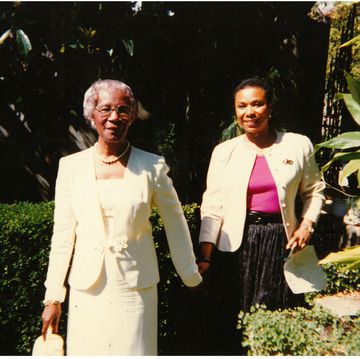Damilola Odufuwa has always been passionate about women's rights in Nigeria. In 2018, she founded Wine and Whine, an organization to help women foster professional networking opportunities, alongside Odunayo Eweniyi, one of Nigeria’s trailblazing tech entrepreneurs and the COO of the app PiggyVest. Wine and Whine was very successful, and Odufuwa and Eweniyi felt inspired to start a new venture with a focus “on education, financial freedom and representation of women in public office.”
‘‘Over the past few years, Nigerian women and activists have crowdfunded on Twitter to support other women and girls who have experienced gender-based violence,” Odufuwa told ELLE.com. ‘‘These funds were used for legal aid, education, mental health support, housing, and shelter, etc. [Eweniyi] and I wanted to do more than just support or crowdfund donations intermittently. We also felt the fight for women’s rights needed to include financial freedom for women and many changes to the misogynistic laws and norms in Nigeria. But we knew we couldn’t do this alone.”
So in July 2020, Odufuwa and her contacts decided to come together to create a coalition of women who were passionate about making their country and the role of women in it better. They called it the Feminist Coalition, and they had no idea how soon their dream of changing Nigeria would become a reality.
In the early weeks of October 2020, videos made the rounds on social media showing members of the Nigerian Police Force's Special Anti-Robbery Squad, shooting at, harassing and killing unarmed citizens. The videos appeared alongside increased reports from hundreds of Nigerians in different parts of the country all confirming an increase in brutality and harassment of citizens by the SARS unit. These reports all seemed to corroborate a simple fact: SARS, which was created to tackle violent crimes like kidnapping, murder and armed robbery, appeared guilty of committing the very crimes it was created to fight against, on the citizens it was created to protect. Within days of these videos spreading on social media, young Nigerians—first all around the country, then all around the world—took to the streets demanding the Nigerian government put an end to the infamous unit.
As the #ENDSARS movement gained significant momentum, many insisted the protests remained leaderless. On social media and in real life, Nigerians took to screaming ‘#ENDSARS no get leader, na all of us be the leader,” a phrase in the Nigerian vernacular that translates to "#ENDSARS doesn’t have one leader, we are all the leaders of it.” When pushed to pick a leader by government officials, organizers referred to the people who were killed, and said they were the leaders. But even as the movement remains without any one leader or governing body, behind the scenes, it’s largely being run by Nigerian women.
One of the first actual #ENDSARS protests of 2020 was organized in part by Rinu Oduala, a social media influencer who coordinated protesters in Lagos to head to the state government house. And one of the most viral images from the protests features Aisha Yesufu, a Nigerian Muslim woman and community organizer, who had marched with protesters in Abuja and was the only person who didn’t run when the police force in the Nigerian capital shot at protesters. Popular podcaster and Feminist Coalition member Feyikemi Abudu and lawyer Moe Odele are among other women who contributed greatly to the movement and helped create a network across the country that ensures the safety and release of protesters who were illegally detained. Although neither women are members of the Feminist Coalition, they worked with it to create and maintain these networks.
Indeed, it’s hard to believe the Feminist Coalition wasn’t created for this moment and this movement. It’s even harder to believe it started planning for the demonstrations within days and was able to fund arguably the biggest and most organized protest in Nigeria in recent memory while remaining accountable and transparent with every kobo (the smallest denomination of Naira) it spent.
‘‘Believe it or not, all this was organized over a one-hour phone call,’’ Ire Aderinokun, Nigeria’s first female Google developer expert and a founding member of the Feminist Coalition, told ELLE.com. ‘‘We’ve regularly had monthly meetings since our inception, but we had not started on any projects yet. When we saw what was happening, we quickly decided we would take this on as our first project. We wanted to play our part and everyone was in agreement and very quickly stepped up. We joke that this was a baptism by fire. We designed a logo, set up the website, got some copy assets together, set up our social media, set up the donation accounts, the request forms, the tracking sheets; Feminist Coalition as it’s known today was literally a reality overnight. This was only possible because every founding member is at the top of her game. We handled it the same way we handle our professional work, and brought the same amount of focus and dedication to the table.’’
As historic as this is, it’s not the first time Nigerian women have been at the forefront of movements like this. The women of Nigeria have been leading, organizing, and maintaining the momentum of movements since colonial Nigeria. Recent movements like the fight to return the kidnapped Chibok girls and #ArewaMeToo—a form of the global #MeToo movement which focused on Northern Nigeria and was founded by Fakhus Hashim—are just two recent examples. It’s this history that made writer and communications strategist Oseyi Etomi tweet about the #ENDSARS movement just days before the protests gained significant global momentum. “There’ll be some traction to the #ENDSARS movement when women organize around it,” she wrote. She was right. Women—in particular feminist Nigerian women—organizing around #ENDSARS has been a significant reason the movement and protests have been sustained for as long as they have been, and why they’ve had such a global impact.
‘‘When you look back in history, women have always been at the forefront of organizing, especially when it comes to serving the community.’’ Etomi told ELLE.com. ‘‘This was no different. One thing you will see in common with, I’d say, almost all if not every woman who was at the forefront of organizing was that we are all feminist women—we have a strong sense of social justice and a desire for an equal society. An injustice to anyone is an injustice to us all, and there is an understanding that no one is free until we are all free. It just continues to show that women are an underestimated asset to society and that we need more women in leadership roles and at every level of governance including the highest seat in the country.’’
Within seven days of organizing around the movement, Feminist Coalition was able to fund over 154 protests around Nigeria with N20,188,280 (approximately $52,000), and by October 21 it raised a total of N77,190,305 (approximately $198,000). Beyond the impressive crowdfunding numbers, what’s perhaps the most striking for many Nigerians is the consistent transparency of Feminist Coalition; at the end of every day, it updates the public on how much has been raised and in what currency, and how much has been disbursed and for what. This transparency has been praised almost as much as the group's efficiency—two qualities many Nigerians note their government lacks. Within Nigeria, a country where misogyny is rife and encouraged and where several patriarchal laws are still in place, the splash and impact made by Feminist Coalition is a win in and of itself.
When the #ENDSARS protests got bloody on October 20, when members of the Nigerian army reportedly arrived at the Lekki Toll Gate in Lagos and shot and murdered dozens, Feminist Coalition turned its focus from sustaining physical protests—which are being discouraged to avoid further casualties—to paying out the bills of injured protesters, as well as working with other organizers to ensure peaceful protesters across the country that were arrested and wrongfully jailed are set free. Now, s in-person protests slow, the women of Feminist Coalition have been the targets of significant backlash. The names of the founding members were included in a recent lawsuit accusing them of encouraging domestic unrest, and the government denied several reports speculating that the women placed on a no-fly list that barred them from leaving the country. Despite the government’s denial, lawyer Odele, who has worked to release #ENDSARS protesters, was prevented from leaving the country and even temporarily had her passport seized. Still, the women of the Feminist Coalition are excited about turning their sights back to and focusing on their core goal of fighting against the oppression that is part of the daily lives of Nigerian women, and ensuring more feminist Nigerian women are placed in positions of power.
‘‘This is one of our founding pillars. We realize that beyond activism from the fringes of governance, we need more women with feminist values in actual power,’’ Layo Ogunbanwo told ELLE.com. ‘‘There are many other organizations, such as ElectHer, that are also advocating for women in public office. This shows a definite mindset shift in how we are approaching women’s rights, and understanding the importance of women in governance. We want more capable women to step up and we are ready to throw our support behind them.’’
